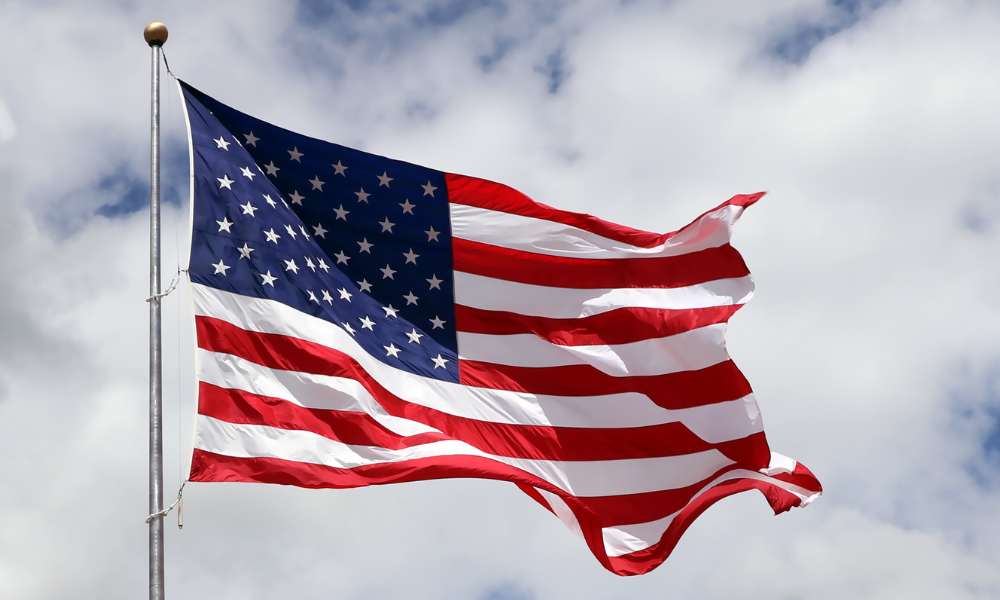
'Donald Trump's reckless threats are a direct attack on workers on both sides of the border'

Many Canadians are expecting the worst for workers should U.S. President Donald Trump push through with his threat of imposing a 25% tariff on all Canadian imports to the U.S.
With Canadians expecting job cuts, 80% want the Canadian federal government to support people who would be impacted by job losses.
"Donald Trump's reckless threats are a direct attack on workers on both sides of the border", says Bea Bruske, president of the Canadian Labour Congress. "Canadians are rightfully alarmed and expect strong leadership from their governments to protect their jobs and defend our industries from these harmful policies."
Economic disruptions caused by tariffs often lead to layoffs, Global News previously noted.
Trump had initially said he will impose the tariff once he officially takes office. However, according to CNN, the U.S. president now plans to impose the tariffs on Feb. 1.
Canadians also want Ottawa to take a strong stand against Trump in the tariffs talk, according to CLC’s survey of 1,500 respondents conducted Jan. 13 and 20, 2025.
Over three-quarters (77%) believe the federal government should retaliate by placing tariffs on American imports and 75% want Canada to cut off American access to Canadian resources like electricity, oil and wood.
Two in three Canadians reject an appeasement policy toward Trump.
"This is a moment of unity for Canada," said Bruske. "Political leaders at all levels of government and from all parties should listen to Canadians and understand that people expect them to stand united for Canada and Canadian workers."
In response to Trump’s threat, the Canadian federal government is going to fight the proposed tariffs by imposing its own tariffs on US imports, according to a previous report from Reuters.
Previously, Ontario Premier Doug Ford praised the federal government’s plan to secure the Canada-U.S. border in response to former Trump’s threat to impose a 25% tariff on Canadian imports.
However, imposing tariffs on US imports is not enough, said Stuart Trew, senior researcher at the Canadian Centre for Policy Alternatives (CCPA).
Instead, Canada should “respond with maximum force and minimum harm to Canadian jobs and inflation through a combination of retaliatory tariffs and strategic export taxes on energy and natural resource exports to the U.S.,” he said.
However, Trump, in a video link forum from Washington DC., said the U.S. does not need resources from Canada.
"We don't need them to make our cars, we make a lot of them, we don't need their lumber because we have our own forests... we don't need their oil and gas, we have more than anybody," he said, according to a CBS report.
Meanwhile, Prime Minister Justin Trudeau, it seems, is opting for peace amid the tariffs issue. He promised to help Trump achieve America's "golden age,” according to another CBS report.
"Canada is a safe, secure and reliable partner in an uncertain world," Trudeau said, according to the report. The alternative, he said, "would be more resources from Russia, China or Venezuela".
Ford has also called for a partnership between Canada and the U.S.
“Canada and the United States can be the richest, most successful, safest and most secure two countries on the planet. Working together, we can usher in a new American and Canadian century, a time of unprecedented growth, job creation and prosperity. We do so by building Fortress Am-Can, a renewed strategic alliance between the U.S. and Canada that is a beacon of stability, security and long-term economic growth on both sides of the border.”
Alberta Premier Danielle Smith has also called on the Canadian federal government to take “steps to preserve and strengthen our economic and security partnership with the United States, and to avoid the future imposition of tariffs.”
Small business confidence in Canada took a hit in the face of the US tariffs threat, according to a previous report from the Canadian Federation of Independent Business (CFIB).